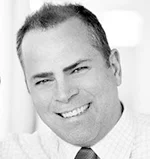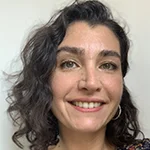Georgia teacher Stephanie Dickerson has told how she became afflicted with electro-sensitivity in 2005 but didn’t realize it until 2012. By then she had lost her career, family relations, her doctor, retirement benefits and much more.
Dickerson tells her story on a special website created by Dave Ashton of the U.K., who hosts ukelectrosensitives.com.
|
|
“The blog will publish articles on what it is like to live with electro-magnetic hypersensitivity (EHS) in the modern world, written by people who know it only too well,” he says.
Media seek to dismiss EHS as a psychological issue and one that is unrelated to electromagnetic fields and radiation, he says.
“Scientific evidence shows that this industry-friendly view of the condition is catastrophically wrong and I hope that the tales of what EHS victims have to endure, and what our backgrounds are, will help to dispel the myth that we have some irrational fear of technology, and that it’s ‘all in our heads,’” he says.
Here is Dickerson’ story in her own words.
Since I discovered I am EHS in 2012, I have had to accept loss—loss of my career, loss of my income, family, friends and so much more.
It seems every time I feel like I get used to my ‘new’ restricted life, I must face yet another loss. As more places implement wi-fi, my world shrinks even more, until there is literally no where I can go comfortably.
It is impossible for non-EHS people to even comprehend the huge burden and the isolation that this condition creates, and the grief one experiences daily for all that has been taken away.
Around 2005 I started having debilitating insomnia and feelings of agitation; I could not relax. I tried everything to keep healthy, and considered many different reasons for my lack of sleep, headaches, anxiety, and general un-wellness.
It never occurred to me that the home wi-fi, the cordless phone and our 2 cell phones had anything to do with my condition.
For seven years this suffering and complaining went on, and continued to get worst.
With Wi-Fi Off, Health Improved
Finally, summer 2012, I had the summer off from teaching school and assumed I would improve, but instead, I became very ill.
It didn’t make any sense. I had nothing to do but rest, and rest didn’t help at all! It made NO sense.
How can you rest and not get better?
One day my husband happened to unplug the wi-fi, and I suddenly felt relief. I couldn’t believe it. My husband saw me relax. He saw me feel better immediately. Both of us were in shock!
We left the wi-fi off and I started improving each day.
Then school started, I was back to teaching, my happiest time, feeling so good! But then the school installed “high density wi-fi” in every classroom and I became desperately ill with heart pounding so hard I thought I would drop dead any minute, plus inability to think, weak, terrible digestion, strange chaotic vibrating inside, and also emotional issues as well.
Without any accommodations for my wi-fi sensitivity by the school, I was forced to leave my job, losing all that goes with having a job one enjoys: fulfillment, daily activity, a life with purpose, friendships at work, not to mention the income and much needed retirement benefits, all lost.
Politicians, Health Pros Must Take up EHS
As wireless has increased since 2012, I have lost family relations, friendships, my doctor, and my dentist of 18 years, leisurely shopping, movies, concerts, gatherings, traveling, planes, hotels, even camping now has wi-fi.
What helps most is being able to talk about EHS and all that goes with it, just like anyone would like to share their life experiences. EHS is my life now, day in and day out and talking about it is important to me.
We need health professionals to recognize the seriousness of the wireless radiation/health connection and accept it as real. We need accommodations, which means having non-wireless areas for us to get needed medical attention without debilitating exposure.
Politicians need to first recognize EHS as a functional disability, and make accommodations for us. More is needed, but that would be a start.



 Lo Isidro, senior director at Real Chemistry with more than a decade of strategic communications and PA experience, has joined Narrative Strategies.
Lo Isidro, senior director at Real Chemistry with more than a decade of strategic communications and PA experience, has joined Narrative Strategies. Nelson Fernandez, former North American chair of APCO Worldwide and managing director of Burson-Marsteller, has joined Volunteers in Medicine Berkshires as director of communications and PA.
Nelson Fernandez, former North American chair of APCO Worldwide and managing director of Burson-Marsteller, has joined Volunteers in Medicine Berkshires as director of communications and PA. Lilit Bargar, who was most recently an EVP in the healthcare practice at Weber Shandwick, comes on board at GCI Health as EVP, corporate practice lead.
Lilit Bargar, who was most recently an EVP in the healthcare practice at Weber Shandwick, comes on board at GCI Health as EVP, corporate practice lead.
 Five ways that successful thought leaders are made.
Five ways that successful thought leaders are made.


 Have a comment? Send it to
Have a comment? Send it to 
No comments have been submitted for this story yet.